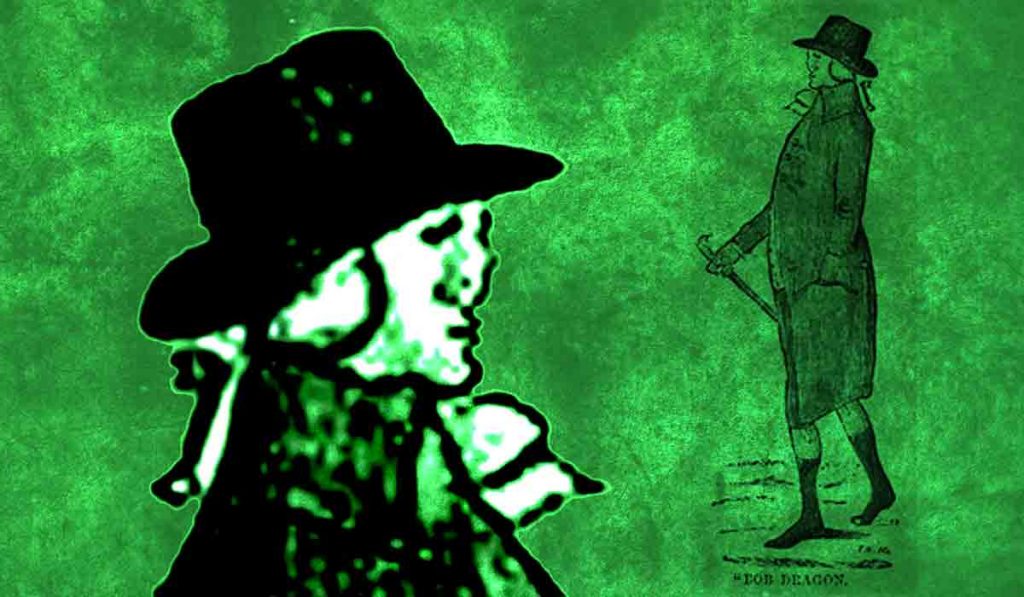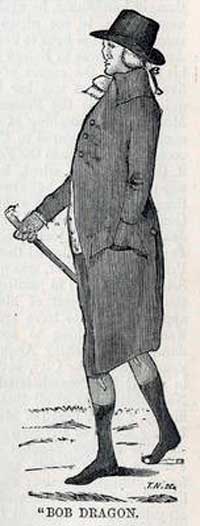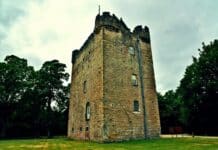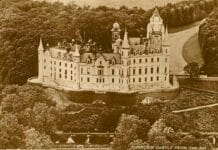MJ STEEL COLLINS recalls the tragic Glasgow tale of “Bob Dragon”

Who was Bob Dragon?
The tale of Bob Dragon is one of Glasgow’s older stories, dating back over 200 years.
It refers to one of the city’s more colourful characters, amusing perhaps at first, but ultimately tragic.
Bob Dragon was the nickname given to Robert Dreghorn, son of one of Glasgow’s merchants, owing to the deformity a childhood bout of smallpox had left him. His face was deeply scarred.
The children would run after him down the street taunting him. If they got in his way, he would cast them aside with a wave of his stick.
Dreghorn had inherited a fortune both from his uncles and his late father, so had no need to work, though, he would often join the other tobacco merchants in the Tontine Hotel in Argyle Street to pass the time of day.
If not there, he was well known for his proclivity of following any young woman he deemed attractive from the centre of town to her front door. It didn’t matter if it was an aristocratic gentlewoman or a factory girl. Though this would probably have him arrested today, at the time it was viewed with some amusement, and the girls themselves saw it as a compliment.
Bob lived with his sister at the junction of Clyde Street and Stockwell Street in what is now Glasgow’s Merchant City area.
Despite his fondness of young women, Bob was a rather dour character, probably not surprising given what had happened to him. He was used as a bogeyman by some local parents to scare their unruly offspring to sleep.
Later on, he fell prey to what one ancient Glasgow book, The Old Country Houses of the Old Glasgow Gentry, describes as “the miser’s delirium tremens, the horror of dying of want” and committed suicide on 19 November 1804. Despite this, the man wasn’t allowed to rest in peace and legends continued to abound about him.
For years, it was believed his house on Clyde Street was haunted, and it lay empty for years. Strange sounds reported there were investigated and it turned out that the property was used by smugglers. Eventually, it was taken on by an oil and ink merchant, George Provand.

Provand didn’t have much luck at the place either as it turned out. A mob attacked the house after seeing what appeared to be blood oozing from the doors. The house was ransacked, the rioters believing bodysnatchers to be at work inside. However, it turned out that the ‘blood’ was only red ink that had leaked.
The outcome was that the ringleaders were deported to the colonies, after what was the last thorough public whipping through the streets of old Glasgow.
A final strange twist in the tale occurred years after Bob Dragon had died.
His unmarked grave was apparently located out in Ruchill, where his family held some land.
A local farmer was digging in the area and uncovered the grave.
In it, Bob lay apparently uncorrupted, something that was supposed to happen to suicides.
The farmer was reportedly given a large sum of money and encouraged to emigrate, whilst Bob was quietly buried elsewhere, never to be found again.







